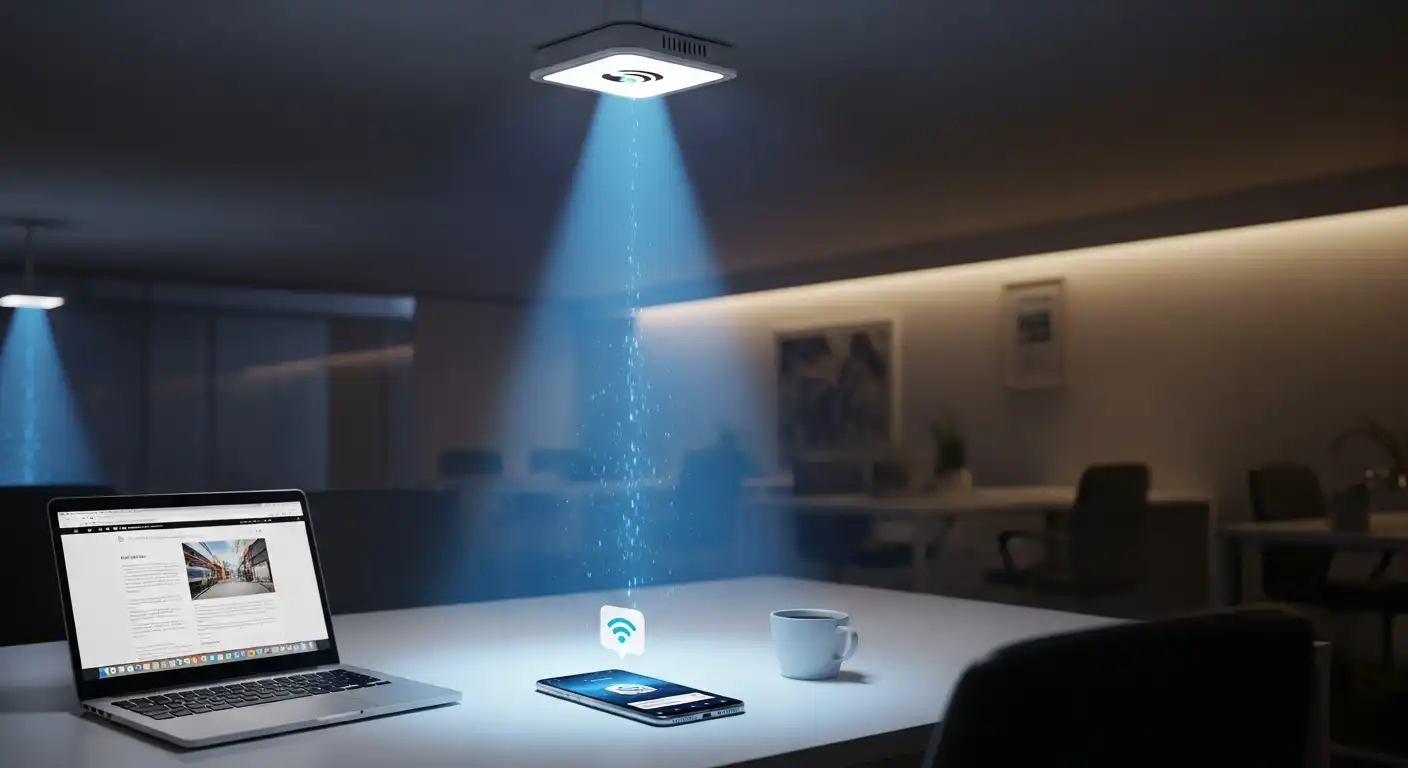Key Points
- LiFi uses LED light sources to transmit data at gigabit speeds, exceeding traditional Wi-Fi in data transfer rates.
- LiFi is immune to electromagnetic interference, making it suitable for environments with high radio-frequency interference, such as hospitals and aircraft.
- LiFi signals cannot pass through walls, ensuring inherently secure data transmission for sensitive applications.
- LiFi can leverage existing infrastructure, such as streetlights, to create citywide networks for traffic management and public safety applications.
In a promising leap towards the future of wireless communication, Li-Fi (Light Fidelity) technology is poised to revolutionize how we connect to the internet. It is a wireless communication technology that uses light to transmit data, offering unprecedented speed and reliability compared to traditional Wi-Fi.
LiFi operates by modulating LED light sources at speeds imperceptible to the human eye. These modulations then transmit binary data, enabling data transfer. What sets LiFi apart is its incredible data transfer rates, reaching gigabits per second, and its immunity to electromagnetic interference. This makes LiFi an ideal candidate for environments where traditional radio-frequency communication may face challenges, such as hospitals, aircraft, and areas with high radio-frequency interference.
The potential applications of LiFi are vast and varied. Here are some key areas where LiFi is expected to have a significant impact. It could bring high-speed internet connectivity to every corner of the globe. With LED lights serving as data transmitters, even areas with limited traditional internet infrastructure could enjoy seamless connectivity.
LiFi offers enhanced security as light signals cannot pass through walls. This inherent feature makes it highly secure and suitable for applications where data privacy is paramount, such as government institutions and financial services.
LiFi can play a pivotal role in the development of smart cities. Streetlights, traffic signals, and other light sources can serve as data transmitters, forming a citywide network for applications such as traffic management and public safety.
The aviation industry is exploring LiFi to provide passengers with high-speed and reliable connectivity during flights. This could significantly improve the in-flight experience and enable new services. Its immunity to electromagnetic interference makes it suitable for healthcare environments where traditional wireless technologies might interfere with sensitive medical equipment. LiFi can enable fast and secure communication in hospitals and clinics.
While LiFi holds immense promise, widespread adoption will require infrastructure upgrades. As the technology matures, researchers and companies are working to overcome challenges and refine LiFi’s capabilities. In the coming years, LiFi will likely become an integral part of the connected world, offering a faster, more secure, and more reliable alternative to traditional wireless communication.





